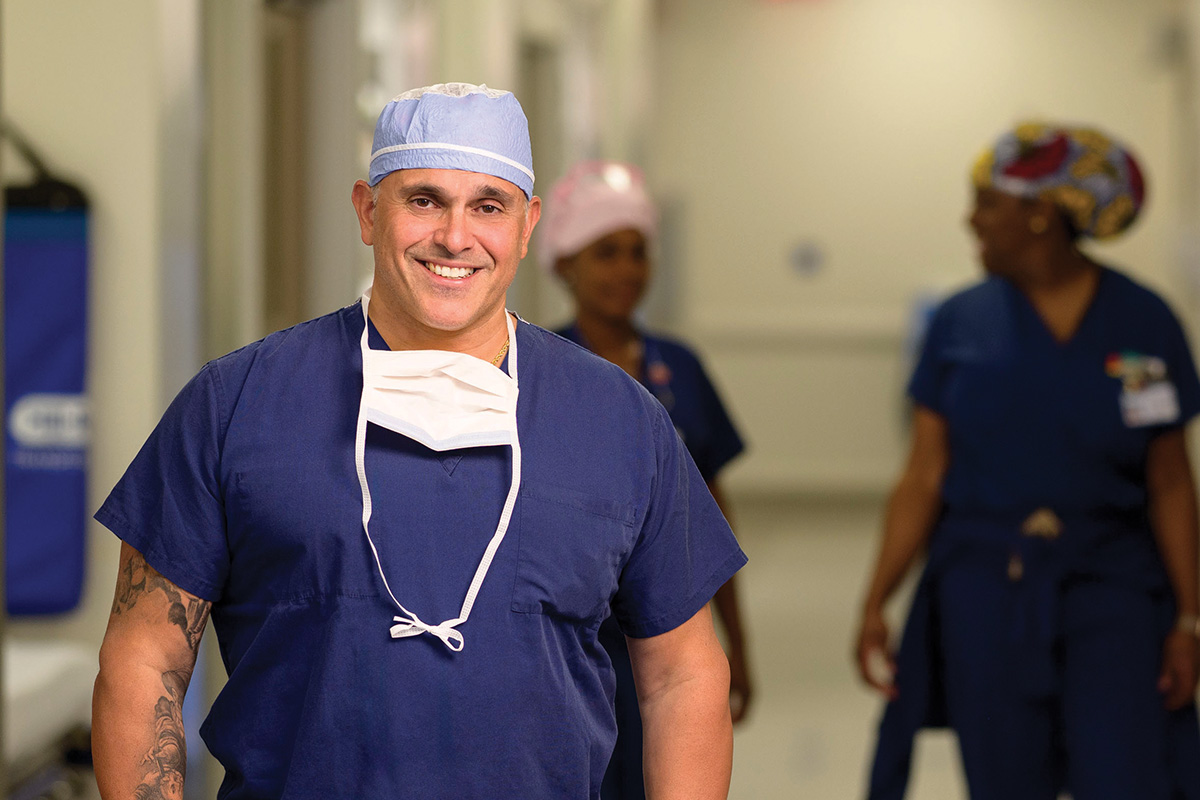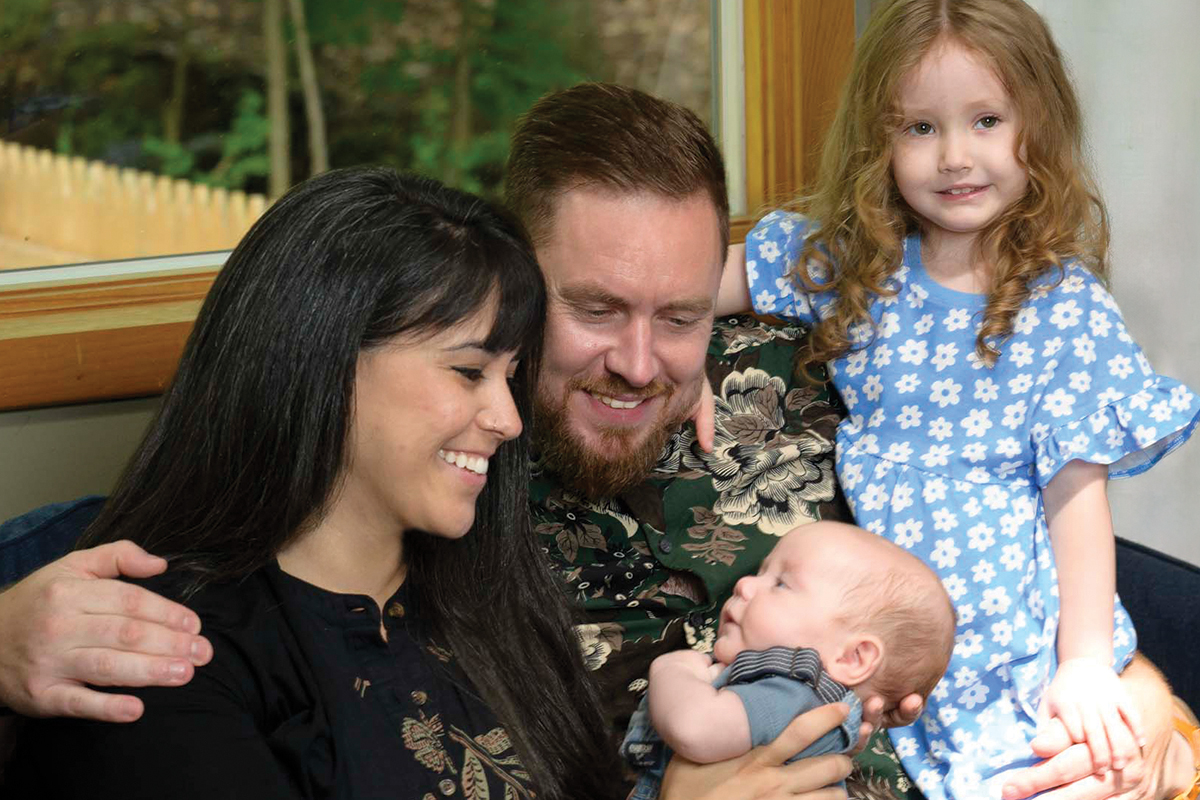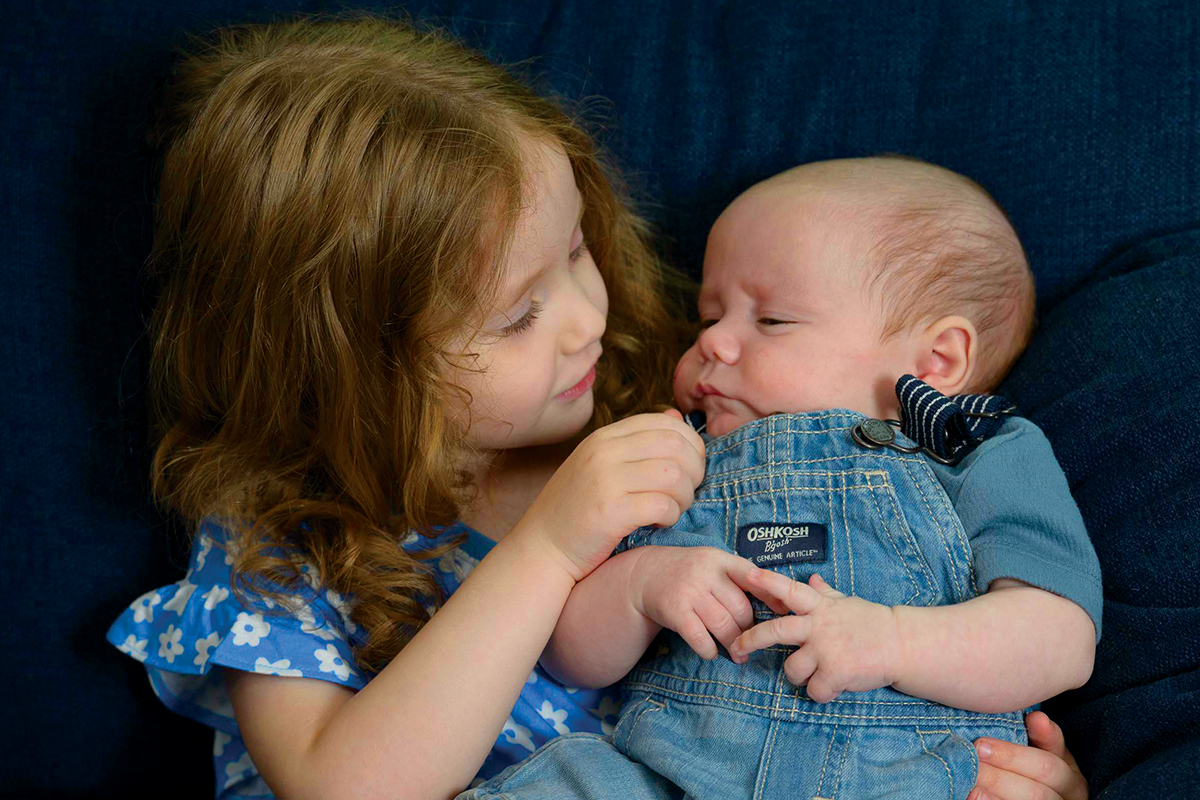
Dana Vergara was the first person in the U.S. to deliver a baby after a groundbreaking surgery at MSK protected her from the side effects of radiation for rectal cancer. "There's a special place in my heart for the MSK doctors who saved me," she says, "and I'd recommend the surgery to any woman in a similar situation."
When Dana Vergara cradles her sweet baby, Hudson, she can hardly believe it.
Dana was 33 years old and the mother of a 5-month-old daughter, Jolene, when she learned that she had stage 3 rectal cancer. She knew it was bad. She wasted no time reaching out to specialists at Memorial Sloan Kettering Cancer Center (MSK).
But Dana’s dreams for her future collapsed as the doctors outlined a treatment plan. The cancer, fortunately, was treatable with radiation, chemotherapy, and surgery — the standard of care — but the therapy that would save her life would most likely have a devastating impact on her fertility.
The Risks of Radiation to Pelvic Region
MSK radiation oncologist Carla Hajj, MD, explained radiation to the pelvis can damage the uterus. “I told her that it would be high risk to carry a pregnancy after pelvic radiation therapy and likely that she would end up with premature menopause,” Dr. Hajj recalls.
For Dana and her husband, Thomas, the threat of infertility as a side effect of her cancer treatment was heartbreaking. “I always wanted to have more kids,” Dana says.
But then, Dana’s MSK doctors suggested yet another option: an innovative fertility-sparing surgical procedure that might protect her uterus and ovaries from the damaging side effects of radiation and enable her to give birth. If she agreed, she’d be only the third patient in the United States to undergo the experimental surgery.
Uterine and Ovarian Transposition: An Innovative Fertility-Sparing Procedure

MSK gynecologic surgeon Dr. Mario Leitao
MSK gynecologic surgeon Mario Leitao, MD, had learned of a pioneering technique to preserve a woman’s ability to bear children called a uterine transposition, which involves temporarily moving the ovaries and uterus up the abdominal wall and out of the pelvis, away from the direct radiation field. After radiation therapy is completed, a second procedure is performed to move the organs back so a woman can conceive. In December 2020, Dr. Leitao along with his MSK partner, gynecologic surgeon Jennifer Mueller, MD, performed the first uterine transposition in the United States.
As MSK reported in 2022, unlike other methods to preserve fertility in cancer patients — such as freezing eggs for use later in a surrogate — this revolutionary procedure can enable the patient to carry a child.
“We expect to perform this surgery mostly in people with rectal and anal cancers. But in theory, this procedure could be used in anyone who will need to receive radiation in the pelvis for their disease,” Dr. Leitao says.
These patients will be treated at MSK’s Center for Young Onset Colorectal and Gastrointestinal Cancer, a clinic dedicated to the needs of the growing number of people under 50 diagnosed with these malignancies.
Dana met the uterine transposition criteria for patients with rectal cancers:
- Under the age of 40
- No cancer in uterus, cervix, or ovaries
- No large fibroids or extensive endometriosis
- BMI less than 35
The profile of colorectal patients eligible for this surgery continues to evolve with each case, but one thing never changes: The primary focus is treating the cancer. “We always discuss with the patient’s entire colorectal team if fertility preservation is best for the patient,” Dr. Leitao says.
Dana was informed of the risks of uterine transposition surgery — potential loss of the uterus and hysterectomy. So far, none of the U.S. patients had given birth to a baby. She weighed the odds, thinking, “If I don’t have this procedure, what are the chances I could carry after radiation?” she recalls. “It was basically no chance at all.” After talking with her doctors and with her family onboard, Dana told Thomas, “Let’s just go.”
A Team Approach and a Multistep Plan to Preserve Dana’s Ability to Deliver a Baby

Dana and her husband, Thomas, with Hudson and his big sister, Jolene
In December of 2021, Dana had the groundbreaking uterine transposition surgery in New York City. It was a two-hour procedure, and she went home the same day.
A month later, Dana began six weeks of radiation treatments with Dr. Hajj, who recommended proton radiation therapy due to its extreme precision and ability to keep the radiation dose to the transposed uterus and ovaries close to zero.
A few weeks after the radiation concluded, Dana started four cycles of chemotherapy. In August 2022, Dr. Leitao put her uterus back into place. Then she had surgery that November to remove the low-lying tumor.
The following summer, Dana and Thomas were given the all-clear to try to get pregnant. “In the summer, we started trying naturally. We were like, ‘Let’s just give it a shot and see what happens,’ ” Dana says. “Basically, the first month that we tried, we got pregnant.”
Hope Restored: The First Baby Born After Uterine Transposition Surgery

Big sister Jolene holds baby Hudson.
Baby Hudson was born in the spring of 2024 via Caesarean section at 32 weeks and weighed 5 pounds. After spending time in the NICU to gain some weight, Hudson went home to his mom, dad, and big sister, who is “head over heels in love with Hudson,” Dana says. About Hudson, Dana notes: “He’s been a little champ. A totally healthy baby. The doctor is so impressed and has no concerns.”
Meanwhile, Drs. Leitao and Mueller have now performed eight uterine transposition procedures and have presented at national oncology conferences and created training videos for the American College of Surgeons. The MSK team hopes that by sharing their knowledge, their colleagues can offer it to more patients around the world.
When Dana was pregnant with Hudson, she shared another special surprise with her MSK doctors. Inspired by their care, Dana has begun training in MSK’s School of Radiation Therapy. Dr. Hajj is thrilled for Dana’s new chapter: “You don’t have cancer. You have a baby. And now you’re going to school. Amazing!”
Dr. Leitao is delighted to be a part of Dana’s family story and says, “I almost feel like a grandparent.”
Dana Is Forever Grateful for Her Doctor and Care at MSK
“There’s a special place in my heart for the doctors who saved me and who are responsible for me being able to carry another baby,” she says. “I’d do that surgery again in a heartbeat. And I’d recommend it to any woman in a similar situation.”